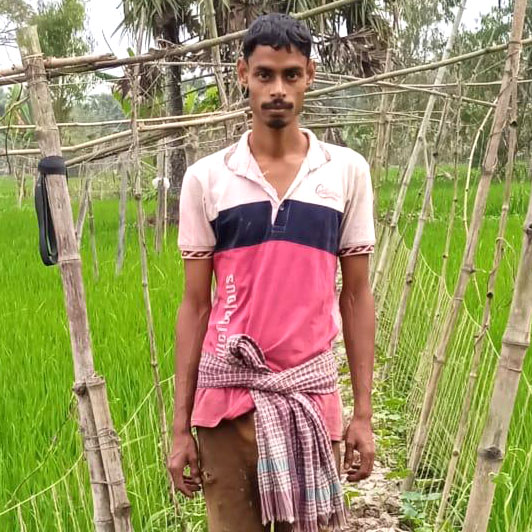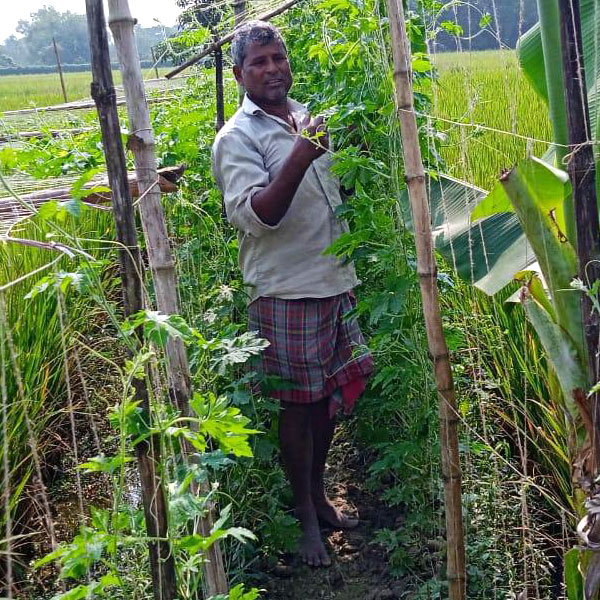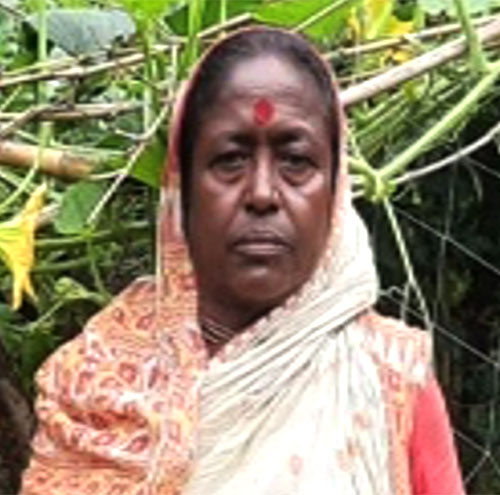Revitalizing Rural Farming through Organic Practices and Vermicomposting in the Sundarbans Region.
Introduction:
The Sundarbans region, located in the eastern part of India, is known for its rich biodiversity and natural resources. However, the region has been facing numerous challenges in recent years, including the aftermath of cyclones and the use of chemical fertilizers and pesticides, which have depleted the quality of soil. To address these challenges, a project was launched to promote organic farming practices and the use of vermicompost among rural farmers coming from marginalized communities in the Sundarbans region.
Beneficiaries:
The project aims to benefit 751 farmers from the region, aged between 30 to 70 years. These farmers are currently working on converting 275 bighas of land into organic farms, with 250 bighas still in progress. Additionally, the project has already created 180 vermicompost pits with 202 more in progress.
Project Highlights:
The project has focused on three main areas to revitalize rural farming in the Sundarbans region:
Organic Farming:
The project has worked with farmers to convert their land into organic farms. The goal is to promote sustainable and environmentally-friendly farming practices that improve soil quality and crop yields. UWK and PWC conducted interactive sessions with farmers to discuss the benefits of organic farming and provide them with training on how to implement these practices.
Vermicomposting:
The project has also introduced vermicomposting to farmers as an alternative to chemical fertilizers. Vermicompost is created by using worms to break down organic matter into a nutrient-rich soil amendment. This process not only improves soil quality but also reduces waste and pollution. The project has already created 180 vermicompost pits, with 202 more in progress, to provide farmers with a sustainable source of organic fertilizer.
Farm-to-Table:
The project has also partnered with housing complexes in Kolkata to promote the consumption of locally grown organic produce. The partnership aims to create a farm-to-table experience that connects urban consumers with rural farmers, providing an opportunity for farmers to earn a fair price for their products while also promoting healthy eating habits among urban residents.
Project Impact:
The project has made significant strides in revitalizing rural farming in the Sundarbans region by promoting sustainable and environmentally-friendly practices. The conversion of land into organic farms has not only improved soil quality but has also resulted in an increase in crop yields, providing farmers with a sustainable source of income. The use of vermicompost has reduced the dependence on chemical fertilizers, resulting in a reduction in pollution and waste. The farm-to-table partnership has provided farmers with access to urban markets, enabling them to earn a fair price for their products and promoting healthy eating habits among urban residents.
Through this project, the hope is to inspire more farmers to adopt organic practices and promote sustainable agriculture in the region. The project has shown that sustainable and environmentally-friendly farming practices can not only benefit farmers but can also have a positive impact on the environment and society as a whole.


